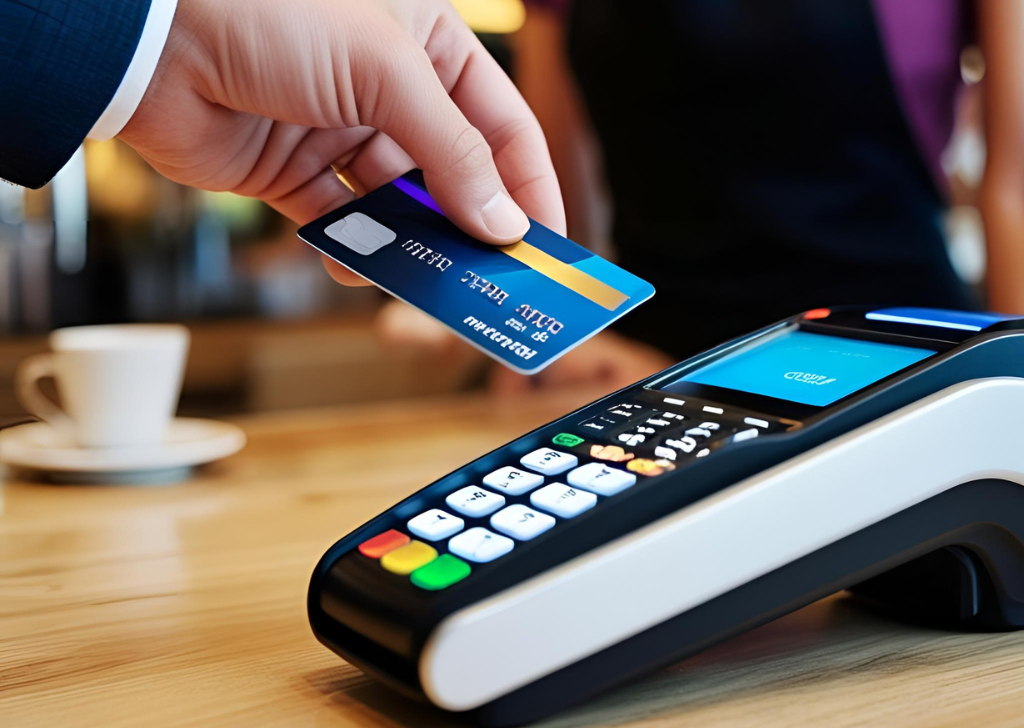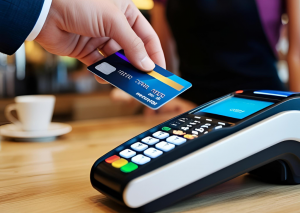Keeping a sound financial profile requires effective credit card payment management. However, despite our best efforts, we occasionally find ourselves incapable of making the required payment on our credit card since life can be unexpected. It’s critical in these circumstances to be aware of the possible outcomes and take precautions to lessen any negative repercussions.

The cardholder must make at least one payment on their credit card balance by the due date shown on the billing statement, and lenders deem credit card payments overdue if the cardholder misses that date. The credit card issuer determines whether a payment is deemed late based on the conditions of usage.
Usually, credit card companies give customers a few days’ grace period after the due date before flagging a payment as overdue to the credit agencies. However, the cardholder’s financial status may suffer significantly if they miss the deadline or pay less than the minimum amount due. Certain credit card companies offer grace periods, allowing cardholders to pay without late fees if they make their payments within the specified timeframe. If the issuer receives a payment after the due date and applies it to an amount not yet due, they cannot deem it late because some issuers distribute payments to the accounts with the highest interest rates first.
Consequences of Missing a Minimum Payment
Several repercussions might impact your financial situation and mental health when you fail to make your credit card minimum payment. It is essential to comprehend these possible outcomes to take preventative measures to properly manage the matter.
Late fees are one direct result of failing to make a minimum payment. Credit card companies usually charge a fee when a payment is missed. Such expenses may mount up rapidly, making the financial burden of the missed payment much worse. Missing a minimum payment will result in an annual percentage rate (APR) penalty, increasing the interest charged on your remaining debt. Late payments may suspend some credit card perks, including rewards and promotions. This can affect your entire financial plan and reduce the value you get from your credit card. Moreover, persistently missing payments may cause your standing with your credit card company to deteriorate, which may limit your access to future financing options and beneficial conditions.
The psychological effects of the stress and anxiety that a late payment causes might negatively affect your general quality of life. It is crucial to handle the matter as soon as possible since the worry of financial consequences and the strain of handling the fallout from the missing payment may be emotionally exhausting. Understanding the many repercussions of failing to make a credit card minimum payment can help you fully comprehend the difficulties that may arise.
Impact on Credit Score and Legal Risks
Missing a credit card minimum payment can significantly impact your credit score. Completing on-time payments is essential to keeping your credit record favorable since your payment history has a big impact on your credit score. Missing a minimum payment may lower your credit score, and the credit card company may notify credit bureaus of the delinquency. Your credit history, delinquencies, and the recency of missed payments can all influence the impact.
Lenders use credit scores to determine the risk of giving people credit, and a lower score might result in higher interest rates or the refusal of credit applications. Additionally, a lower credit score may have an impact on non-credit-related areas of life, including employment prospects, insurance rates, and rental prospects.
If you fail to make a minimum payment on your credit card, the credit card company may pursue legal action to collect the unpaid amount. You must understand the possible repercussions of persistent delinquency and nonpayment, even though this is usually reserved for extreme cases.
The credit card issuer may pursue legal action in several ways, such as bringing a lawsuit to enforce payment, getting an injunction against the cardholder, or, in the worst situations, attempting to collect assets or seize wages to pay off the debt. It is crucial to remember that depending on the jurisdiction and the conditions specified in the cardholder agreement, the credit card issuer may have different options for what to do.
Proactive Strategies and Prevention
Take proactive measures, such as speaking with the issuer, arranging payment plans, and sticking to future payment dates, to resolve a missed payment and lessen its effect on your credit score. Comprehending the relationship between late payments and changes in your credit score is crucial for dealing with delinquencies and putting plans in place to protect your credit.

It is essential to have a well-organized budget, monitor income and spending, and utilize credit responsibly to prevent missing credit card payments. Budgeting tools can facilitate tracking. To keep your credit score high and prevent overspending, pay off your whole bill each month. Establishing an emergency fund helps lower the chance of missing payments by acting as a safety net in the event of unforeseen costs. All things considered, avoiding late payments and keeping a high credit score depend on prudent financial practices, budgeting, and cautious credit use.
Tools and Habits for On-Time Payments
Consider scheduling automated payments from your bank account, adding reminders to your calendar or phone, and subscribing to your issuer’s email and text message notifications to guarantee on-time credit card payments. The majority of banks and issuers have account management mobile applications that let you check your balance, send payments, and create reminders and notifications. Making several little payments throughout the month can help you remain on top of your account and prevent you from skipping any payments if your amount is high. Try to pay more each month than the minimum if you can to pay off the loan more quickly and save interest. Make a plan and put money away in advance if you expect erratic spending to guarantee on-time credit card payments.





